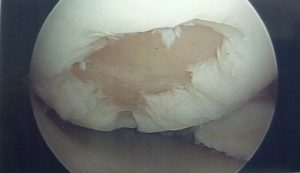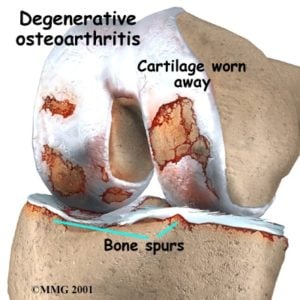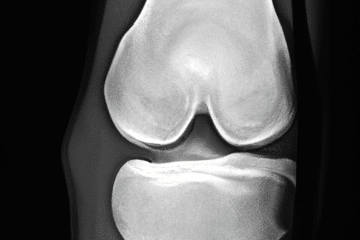
ACL tears are far more common than in the past. Up until recently our primary goal of ACL surgery was to stabilize your knee to prevent further damage. It appears that we now have evidence that ACL surgery may minimize the risk of developing osteoarthritis.
If you try to return to sports with a knee without an ACL the knee becomes unstable. When the knee is unstable it can give way. Each time your knee gives way there is a risk that you will incur further damage to the meniscus or the cartilage on the ends of the bones. Damage to a meniscus or the cartilage on the end of the bone will lead to osteoarthritis.

When you tear your ACL you might also have a meniscus tear. Many ACL tears occur without damage to the other structures in the knee. When we see an athlete in our office with an ACL tear the primary goal of surgery to repair or reconstruct the ACL is to try and allow that athlete to return to the field. Adults who tear their ACL have a choice. Many adults can live a long happy and active life without an ACL. Some adults with ACL tears will experience instability. In those instances, they will have a choice to make. Change their activities or have ACL surgery to stabilize the knee.

Repairing the ACL has advantages beyond allowing you to return to your active lifestyle. By stabilizing the knee an ACL reconstruction can minimize the risk of tearing a meniscus which is common in an unstable knee. If we can minimize the risk of developing a meniscus tear or other further damage then we can decrease the risk of developing osteoarthritis of the knee. Bracing is an option considered in older individuals to try and control a knee which is unstable.
Researchers from the Mayo Clinic recently published a retrospective review looking at about 1000 patients followed over a 10 year period. Their study shows that an early reconstruction of the ACL can be protective. Early ACL surgery can prevent the knee from developing arthritis as a result of further damage to the meniscus cartilage.
Although more research is necessary, it appears that ACL surgery can decrease the risk of developing osteoarthritis after an ACL tear.
Amazon affiliate link on this post














My 14 year old totally tore her ACL during a bit at a soccer game. She also may have damaged the miniscus. Her growth plates are not totally closed. But Doctor thaight it would be Ok. Should we wait to have the surgery and which graft should we use for Surgery if we decide to do sirgery
Tough injury at this age. Answer depends on her bone age and what her growth plates look like. There are techniques where we can avoid the growth plates completely… or we use a soft tissue graft ( one of her hamstring tendons) and then fixation of the graft above the femoral growth plate and below the tibial growth plate. Regardless of technique there is always a risk of injury to the growth plate.
i am 50 years old and I not able to walk properly because of my right knee pain since last 6 weeks.
Today MRI report came and it says –
Thickening and hyper attenuation of the ACL.
Chronic tear noted of the ACL
Moderate tri compartmental osteoarthritis.
Do I need to go for ACL surgery? I love to do exercise and maintain my health but my knee pain preventing me even from walking. Please let me know.